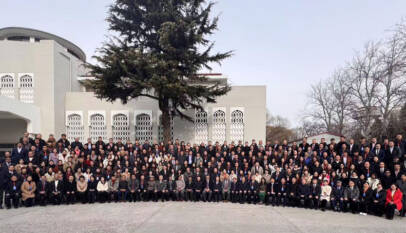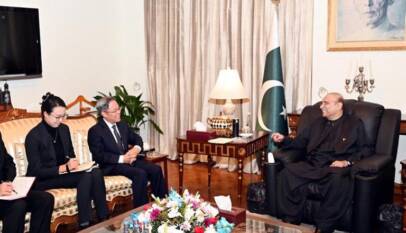Pakistan’s economy set for boost as phase-II of CPEC gears up
The second phase of the China-Pakistan Economic Corridor (CPEC) holds significant promise for bolstering Pakistan’s economy through rural development, agricultural advancement, industrial growth, and sustainable practices. Mahmood Khalid, executive director of the CPEC Centre of Excellence, highlighted the importance of timely implementation in generating economic momentum and employment prospects. The commitment of both countries to rejuvenate phase-II, a vital component of China’s Belt and Road Initiative, is noteworthy. Key projects like the ML-1 railway endeavor are set to enhance connectivity and intercity trade, while the transition to clean energy is anticipated to reduce reliance on imported fossil fuels and stabilize foreign exchange reserves. In essence, the revitalization of phase-II stands to drive industrialization, social progress, special economic zones, and renewable energy expansion in Pakistan.
The second phase of the China-Pakistan Economic Corridor (CPEC) will play a crucial role in strengthening Pakistan’s economy through rural development, agricultural progress, industrial growth, and environmentally sustainable initiatives.
Mahmood Khalid, executive director at the CPEC Centre of Excellence, Islamabad, said this while talking to WealthPK.
Speedy implementation of the CPEC phase-II projects will not only provide a cushion against the sluggish growth rate, but also create job opportunities, he opined.
It is important to mention that both the countries recently pledged to revive the phase-II on the 10th anniversary of the CPEC – an important part of the China-proposed Belt and Road Initiative.
Mahmood said Pakistan’s significant budgetary and financial limitations resulted in unfortunate delays in the implementation of the CPEC projects.
“With a renewed commitment shown by the Government of Pakistan to facilitate the phase-II projects, the manufacturing and agricultural sectors will thrive,” he added.
Mahmood appreciated both the countries’ commitment to complete the much-needed ML-1 project.
“The multibillion landmark railway project has a vital significance in the infrastructure development of the country, and its completion under phase-II will improve connectivity and enhance intercity trade and commerce. The 1680km track will serve as a bridge among the provinces of Pakistan,” he said.
Moreover, he highlighted the importance of phase-II for making a transition to clean energy and its fruitful outcomes for Pakistan.
“With the completion of phase-II projects, Pakistan will be able to have an energy mix comprising a large portion of renewable energy. The depletion of foreign exchange reserves due to the imported fossil fuels is thus expected to scale down,” he said.
In summary, the revival of phase-II bodes well for fostering industrialization, advancing social development, expediting the growth of special free economic zones, and promoting the expansion of renewable energy initiatives within the country.
Chinese company to invest $350 million for EV and charging stations in Pakistan
Chinese company ADM Group has unveiled a major investment of $350 million in Pakistan, wit…












